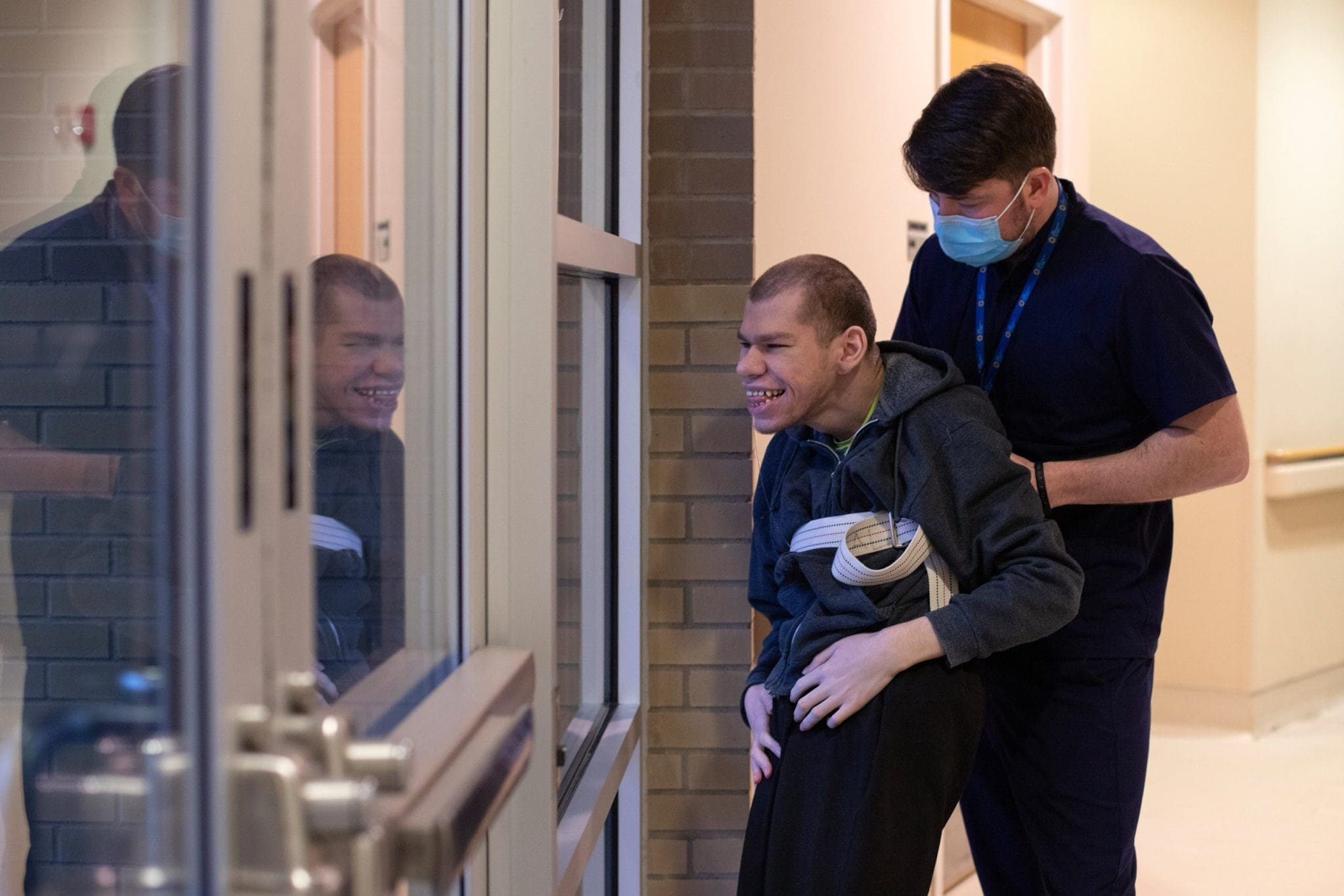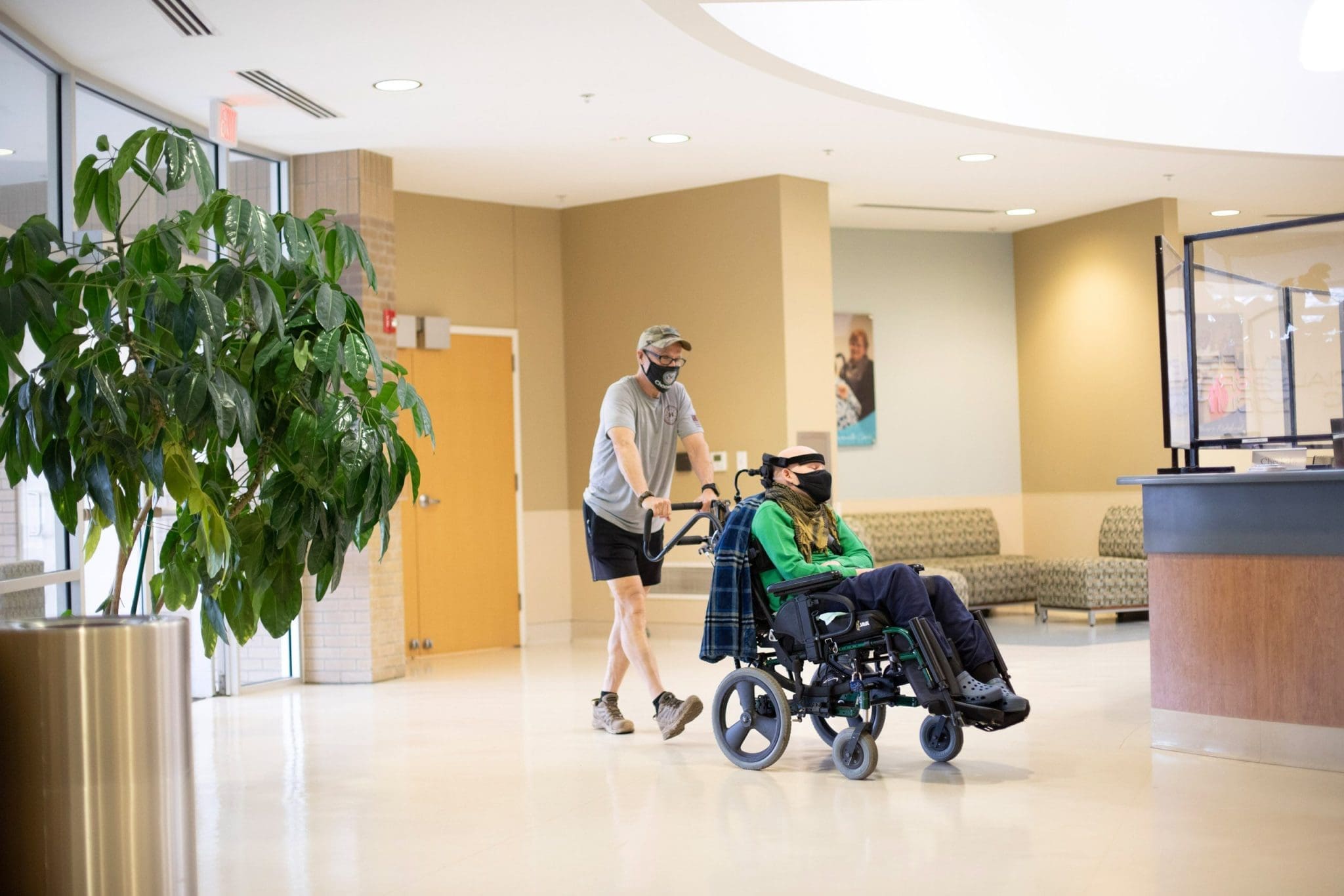© 2022 Kramer Davis Health. All Rights Reserved.
NEUROLOGY
Supporting your neurodevelopmental uniqueness
Neurology encompasses the assessment and treatment of the central and peripheral nervous system in order to stabilize or improve functions such as cognition, sensation, perception, seizures, pain, and movement.





Our medical clinic is a calm, happy, and secure place where compassionate professionals strive to improve the quality of life for individuals with IDD.
DO BETTER
The problem with many healthcare facilities
Every person is neurodevelopmentally unique. That is part of what makes you special. Many of our patients at Kramer Davis have seizures or other neurological concerns. Throughout most of the healthcare system, neurology often works in isolation. At Kramer Davis, our neurologists have experience working with interdisciplinary teams and approach medical recommendations with the whole person in mind.
CELEBRATING NEURODIVERSITY
Focusing on the whole person, not only the diagnosis.
Establishing a neurodevelopmental diagnosis is fundamental to creating an intelligent, transdisciplinary plan of care for our patients. This approach is not practiced in most healthcare facilities across America. We recognize and appreciate the fact that individuals with IDD manifest health and well-being, as well as illness and disease in ways that can be different and more complex than their neurotypical patient counterparts. Most patients with IDD have been overlooked, underestimated, and undervalued by the medical and dental professions. Our transdisciplinary team works together in focused collaboration to identify not only who the individual is, but also create individualized, patient-focused goals and strategies that can achieve optimal outcomes in the lives of these patients for whom we care so much.
KINDNESS, COMPASSION, & ADVOCACY
Advocating for our patients
For well over twenty-years, Dr. Matt Holder, Dr. Henry Hood, and the entire Kramer Davis leadership team have urged the clinicians to whom we’ve provided instruction to not only strive to be competent clinicians and patient mentors, but also to be fierce and unrelenting advocates for our patients. Almost every single Kramer Davis patient has had a significant impact on the lives of the clinicians who have cared for them. It’s a story that’s been lived over and over. We are constantly learning from the patients we serve. We have always gotten so much more in return from our patients than we ever have given them. And that’s worth advocating for.
WHAT TO EXPECT
Welcome to Kramer Davis, we’re so glad you’re here.
Upon entering the clinic, patients and caregivers are welcomed in a calm, clean environment. Our providers introduce themselves and engage with both the patient & caregiver and find out the details pertinent to the patient’s lifestyle. We use that information to modify the space to meet their particular sensory needs.
WHAT TO EXPECT
Getting to know you.
For the first visit, we are focused on getting to know our new patient and how they react to the environment and what they do and don’t like. If we find out our patient doesn’t like glasses, or that they are passionate about tacos, those notes may make it into our files for later! We want to establish a relationship with you, and help you to be at ease.
WHAT TO EXPECT
Intentionally & effectively communicating every step of the way.
Throughout each appointment, clinicians and staff ensure that we communicate each step in a way that our patients can understand (verbal, visual, pictures, communication devices, etc).
WHAT TO EXPECT
Review of medical history & neurological exam
The neurologist will ask you about your medical history. As with all of the healthcare disciplines at Kramer Davis, the more information you can give us, the better we will be able to tailor our approach, together. During the visit, the neurologist may give you a full neurological exam. Though the neurological exam is serious medicine, it can be fun too. You may find yourself trying to stand on one foot, or rolling your eyes and sticking out your tongue. If you have a seizure disorder, the neurologist will certainly want to hear every detail about that. So, we recommend that you track the type, length, time of onset, description and any other details you can think of about any seizures that you might have. If you have those records or a wearable device that helps you track that information, be sure to bring it with you. As with any medical concern, if it is new or recurring, try to write down as much descriptive information about it and any patterns that seem to make it better, worse, more noticeable or less noticeable.
WHAT TO EXPECT
Going above and beyond your greatest expectations
As you leave, we hope you feel relief. You take a deep breath. The pressure is alleviated, and you know that you have a whole team here working together to coordinate the best possible care and outcome. For patients who require long-term partnership with a neurologist, we want them to understand it sometimes takes many visits to find the best course of action and that throughout different phases of life, needs will change, and treatments may need to be adjusted. The neurologist is here to help you though these changes. All of the medical professionals, dentists, therapists, and specialists are working together with you! You came to the right place.
Kramer Davis Virtual Tour
4:54 duration
Frequently Asked Questions
Our team answers some of our most frequently asked questions in the area of behavioral health for those with IDD.

What should I know about anti-seizure medications?
While we receive a wide variety of questions, one thing we like for our patients to know about antiseizure drugs is that many of them do increase the risk of developing osteoporosis later in life. So, we recommend talking with our primary care doctor nutritionists about regular testing for this and what can be done through diet and lifestyle choices to improve bone health.
What do I do if I notice a neurological change?
DO NOT WAIT! If you notice a change in the way an existing neurological issue is impacting you, make an appointment right away. If you notice a new neurological change, this could be an emergency you should call 911. Sometimes new neurological changes can be lessened or even reversed, the faster you seek medical attention, the more likely that is to happen.
Please Note: Services may vary for each Kramer Davis clinic location.